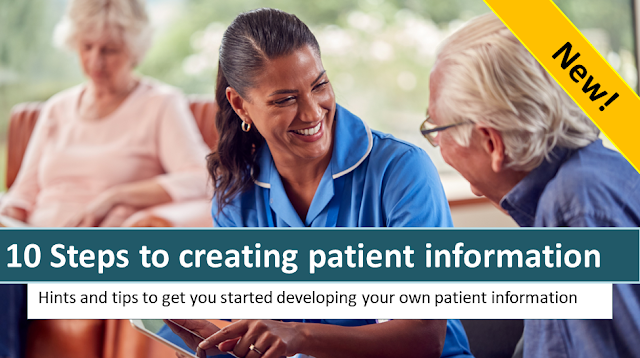Inspired by Health Information Week we've created a new tutorial 10 steps to creating patient information.
Here you'll get hints and tips on preparing health information for your patients. You'll learn about health literacy and how you can accommodate poor health literacy to make sure that your patients are well informed and can make good healthcare decisions.
Try the tutorial now: 10 steps to creating patient information
Need more help?
You can find more etutorials on our Information Skills eTutorials page.
Contact the Health Library if you need any help.

Comments
Post a Comment